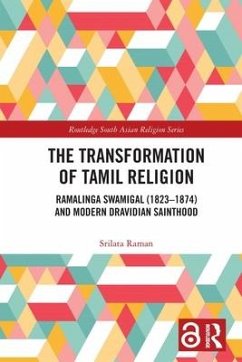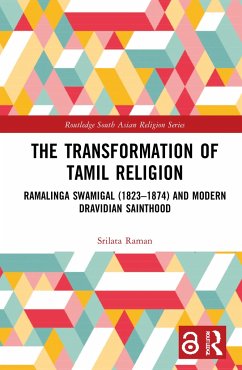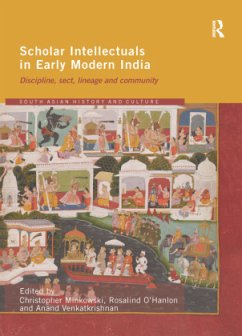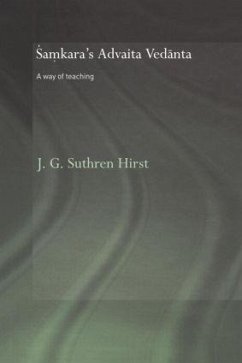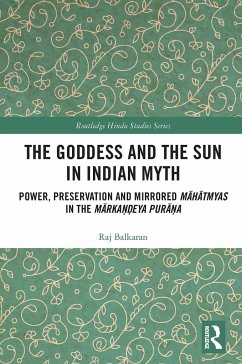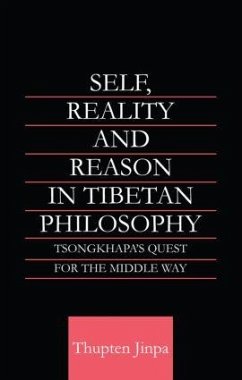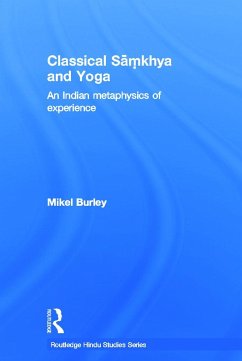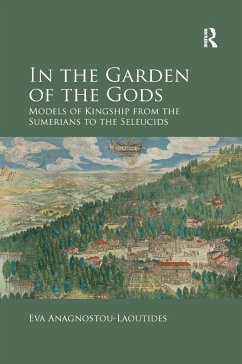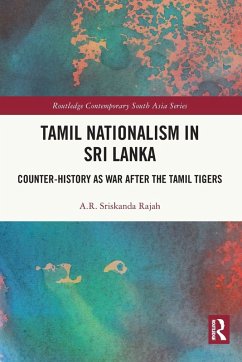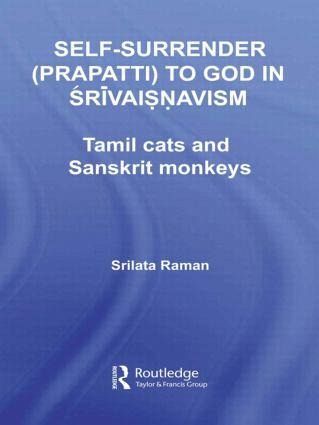
Self-Surrender (prapatti) to God in Shrivaishnavism
Tamil Cats or Sanskrit Monkeys?
Versandkostenfrei!
Versandfertig in 6-10 Tagen
60,99 €
inkl. MwSt.
Weitere Ausgaben:

PAYBACK Punkte
30 °P sammeln!
Filling the most glaring gap in Shrivaishnava scholarship, this book deals with the history of interpretation of a theological concept of self-surrender-prapatti in late twelfth and thirteenth century religious texts of the Shrivaishnava community of South India. This original study shows that medieval sectarian formation in its theological dimension is a fluid and ambivalent enterprise, where conflict and differentiation are presaged on "sharing", whether of a common canon, saint or rituals or two languages (Tamil and Sanskrit), or of a "meta-social" arena such as the temple.Srilata Mueller, ...
Filling the most glaring gap in Shrivaishnava scholarship, this book deals with the history of interpretation of a theological concept of self-surrender-prapatti in late twelfth and thirteenth century religious texts of the Shrivaishnava community of South India. This original study shows that medieval sectarian formation in its theological dimension is a fluid and ambivalent enterprise, where conflict and differentiation are presaged on "sharing", whether of a common canon, saint or rituals or two languages (Tamil and Sanskrit), or of a "meta-social" arena such as the temple.
Srilata Mueller, a member of the Shrivaishnava community, argues that the core ideas of prapatti in these religious texts reveal the description of a heterogeneous theological concept. Demonstrating that this concept is theologically moulded by the emergence of new literary genres, Mueller puts forward the idea that this original understanding of prapatti is a major contributory cause to the emergence of sectarian divisions among the Shrivaishnavas, which lead to the formation of two sub-sects, the Tenkalai and the Vatakalia, who stand respectively, for the "cat" and "monkey" theological positions.
Making an important contribution to contemporary Indian and Hindu thinking on religion, this text provides a new intellectual history of medieval Indian religion. It will be of particular interest to scholars of Shrivaishnava and also Hindu and Indian religious studies.
Srilata Mueller, a member of the Shrivaishnava community, argues that the core ideas of prapatti in these religious texts reveal the description of a heterogeneous theological concept. Demonstrating that this concept is theologically moulded by the emergence of new literary genres, Mueller puts forward the idea that this original understanding of prapatti is a major contributory cause to the emergence of sectarian divisions among the Shrivaishnavas, which lead to the formation of two sub-sects, the Tenkalai and the Vatakalia, who stand respectively, for the "cat" and "monkey" theological positions.
Making an important contribution to contemporary Indian and Hindu thinking on religion, this text provides a new intellectual history of medieval Indian religion. It will be of particular interest to scholars of Shrivaishnava and also Hindu and Indian religious studies.





